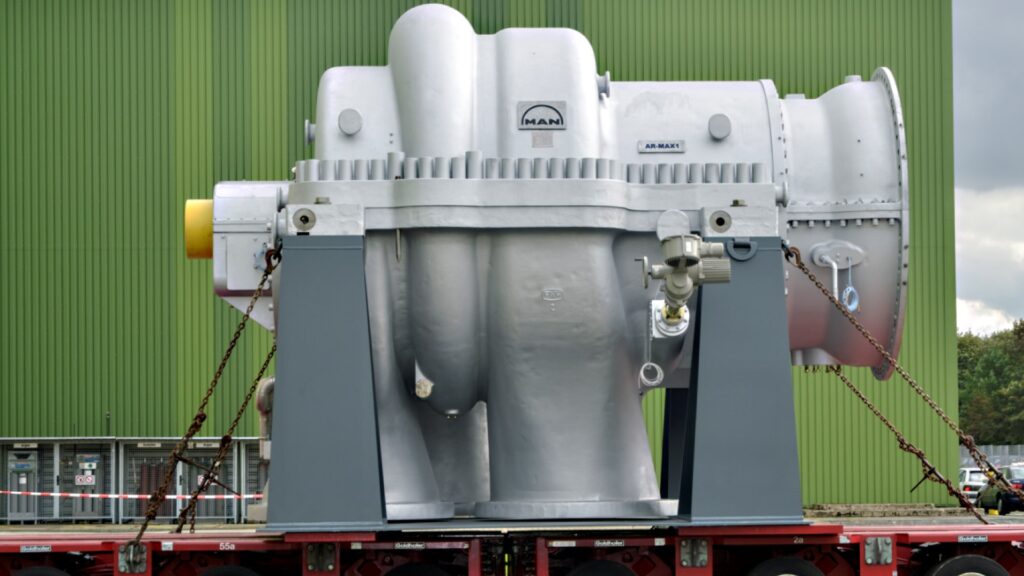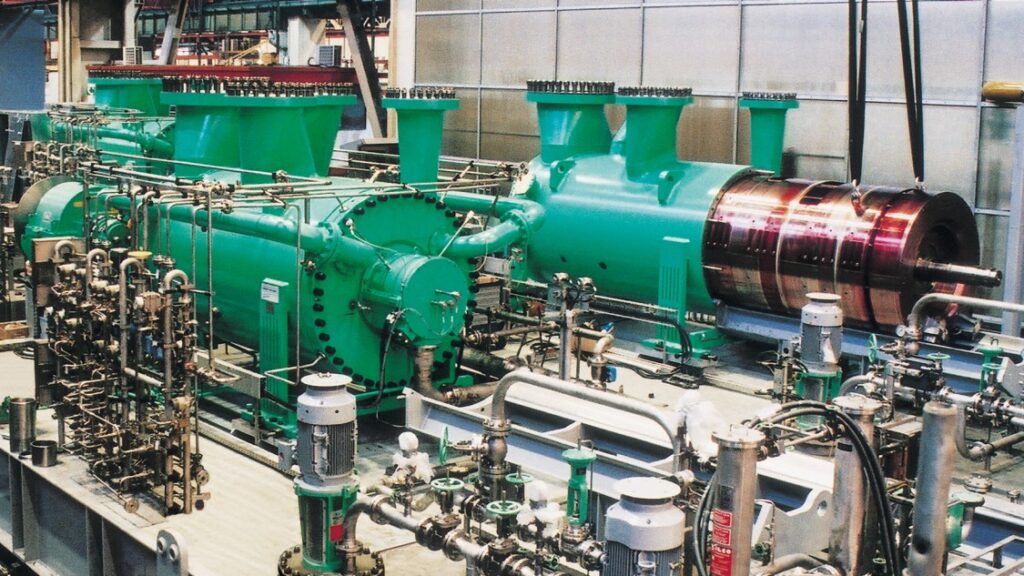MAINTAINABILITY vs SPARE PARTS PHILOSOPHY - CENTRIFUGAL COMPRESSORS

WHAT IF WE DON'T HAVE IMPLEMENTED A SPARE PARTS PHILOSOPHY AND HOW COULD AFFECT THE MAINTAINABILITY - CENTRIFUGAL COMPRESSORS
Maintainability of centrifugal compressors can be improved by implementing proper maintenance procedures, including regular inspections, preventive maintenance, and prompt repairs when issues are identified. Additionally, having a spare parts philosophy in place can greatly improve the maintainability and availability of these compressors.
Without a spare parts philosophy, a plant may experience longer downtime and reduced availability of the compressor in case of a breakdown or malfunction. This is because there may be delays in sourcing and shipping replacement parts, leading to prolonged equipment downtime and unscheduled shutdowns. In addition, using non-genuine or inferior quality spare parts can result in reduced reliability and longevity of the compressor, leading to frequent breakdowns and reduced availability.
To ensure a very good timing about maintainability in centrifugal compressors, it is important to implement a spare parts philosophy that includes the following actions:
Inventory management: Keep an inventory of critical spare parts for the compressor on hand at all times, and regularly update the inventory to ensure that it remains accurate and up-to-date.
Quality assurance: Ensure that all spare parts procured are of the highest quality, and meet or exceed the manufacturer’s specifications. This can be achieved by working only with reputable suppliers who can provide certification and warranties for their products.
Maintenance planning: Develop a comprehensive maintenance plan that includes regular inspections and preventive maintenance activities, such as oil changes, filter replacements, and alignment checks. This can help to identify potential issues before they escalate into critical failures, reducing the risk of unscheduled shutdowns.
Training and development: Ensure that all maintenance personnel are properly trained and equipped with the necessary skills and knowledge to carry out maintenance and repair activities on the compressor. This can include providing training on how to identify and diagnose common issues, as well as how to safely carry out maintenance and repair work.
Overall, implementing a spare parts philosophy can greatly improve the maintainability and availability of centrifugal compressors in industrial plants, leading to reduced downtime, fewer unscheduled shutdowns, and increased reliability of the equipment.
WHY, WHERE, WHEN, WHO, HOW TO IMPLEMENT A SPARE PARTS PHILOSOPHY IN ORDER TO IMPROVE THE MAINTAINABILITY IN CENTRIFUGAL COMPRESSORS
A spare parts philosophy is essential in the oil and gas and petrochemical industries to ensure the availability and reliability of centrifugal compressors. Here are the answers to your questions:
WHY: A spare parts philosophy ensures that the right parts are available at the right time, minimizing downtime and reducing the risk of unscheduled shutdowns. This leads to better reliability and availability of the compressors, which are critical components in industrial plants.
WHEN: The spare parts philosophy should be implemented during the design and construction phases of the plant, but it can also be implemented at any point during the operation and maintenance of the compressors.
WHO: The implementation of the spare parts philosophy should be a collaborative effort between the plant owners, the compressor manufacturer, and the maintenance team.
HOW: The following steps can be taken to implement a spare parts philosophy for centrifugal compressors:
Determine the criticality of each component in the compressor and create a prioritized list of parts that need to be stocked.
Establish minimum and maximum stock levels for each part based on lead times, usage rates, and criticality.
Implement a tracking system to monitor the usage and inventory levels of spare parts.
Conduct regular audits of the spare parts inventory to ensure that it is up-to-date and accurate.
Establish a maintenance schedule that includes regular inspections and replacement of critical parts based on their expected life cycle.
WHERE: The spare parts should be stored in a secure, climate-controlled location that is easily accessible to the maintenance team.
In the case of not having implemented a spare parts philosophy, the availability and reliability of the centrifugal compressors could be affected by the lack of essential spare parts. This could result in unscheduled shutdowns, increased downtime, and decreased production, leading to financial losses for the plant.
PROCEDURES AND RECOMMENDATIONS TO IMPLEMENT A SPARE PARTS PHILOSOPHY IN ORDER TO IMPROVE THE MAINTAINABILITY AND AVAILABILITY
Here are some special procedures and technical recommendations that can be implemented in order to implement a spare parts philosophy in the industry of centrifugal compressors to improve maintainability and availability:
Conduct a criticality analysis: Identify the critical components in the compressor system and prioritize them based on their importance to the operation. This will help determine which parts should be stocked and which can be ordered as needed.
Develop a spare parts list: Create a list of all the spare parts needed for each compressor, including the critical and non-critical parts. This list should be regularly updated based on equipment changes, inventory levels, and feedback from maintenance teams.
Establish a minimum/maximum inventory level: Set a minimum and maximum inventory level for each spare part based on usage and lead time. This will help ensure that parts are always available when needed and that excess inventory is minimized.
Implement a tracking system: Use a computerized maintenance management system (CMMS) to track spare parts inventory levels, usage, and lead times. This will help ensure that the spare parts list is accurate and up-to-date.
Ensure proper storage conditions: Store spare parts in a clean, dry, and well-ventilated area to prevent damage from moisture, dust, or other contaminants. Use appropriate shelving and labeling to make it easy to find and retrieve parts.
Develop a maintenance schedule: Establish a regular maintenance schedule for spare parts, including inspections, cleaning, and testing. This will help ensure that parts are in good working condition when needed.
Train maintenance personnel: Train maintenance personnel on the importance of spare parts management and how to use the tracking system. This will help ensure that the spare parts philosophy is implemented effectively and that all team members understand their roles and responsibilities.
By implementing these procedures and recommendations, industries can significantly improve the maintainability and availability of their centrifugal compressors, reducing the risk of critical failures and unscheduled shutdowns.

FREQUENT QUESTIONS & ANSWERS IN THE INDUSTRY ABOUT MAINTAINABILITY vs SPARE PARTS PHILOSOPHY -CENTRIFUGAL COMPRESSORS
Here are some frequently asked questions and answers about maintainability and spare parts philosophy specifically related to centrifugal compressors in oil, gas, and petrochemical industries:
Q: What are centrifugal compressors? A: Centrifugal compressors are dynamic compressors that use impellers to increase the pressure and flow of gases or vapors.
Q: Why is maintainability important for centrifugal compressors? A: Maintaining centrifugal compressors efficiently and effectively is crucial to minimize downtime and ensure the availability of compressed gases or vapors for various applications in oil, gas, and petrochemical industries.
Q: What is a spare parts philosophy for centrifugal compressors? A: A spare parts philosophy for centrifugal compressors is a strategy that ensures the availability of critical spare parts for these compressors to reduce downtime and ensure reliability.
Q: What are some factors to consider when implementing a spare parts philosophy for centrifugal compressors? A: Some factors to consider include identifying the critical spare parts required for the specific compressor model, setting stock levels based on lead time and frequency of usage, continuously monitoring and updating inventory levels, and ensuring effective communication between maintenance and procurement departments.
Q: How can users and clients ensure good maintainability of centrifugal compressors? A: Users and clients can ensure good maintainability of centrifugal compressors by implementing a preventive maintenance program, performing regular inspections and maintenance, using high-quality parts and lubricants, investing in training for maintenance staff, and continuously monitoring and updating inventory levels of critical spare parts.
Q: What are some potential consequences of not having a spare parts philosophy in place for centrifugal compressors? A: Not having a spare parts philosophy in place for centrifugal compressors can result in critical failures, unscheduled shutdowns, and prolonged downtime, which can lead to significant losses in production, revenue, and safety.
Q: How can technology help improve maintainability and spare parts management for centrifugal compressors? A: Technology such as predictive maintenance systems, asset management software, and remote monitoring can help to improve maintenance efficiency, reduce downtime, and ensure the availability of critical spare parts for centrifugal compressors.
Q: What are some procedures and recommendations to improve the maintainability due to have or not a spare parts philosophy in case of centrifugal compressors, in order to reduce critical failures, in oil, gas, and petrochemical industries? A: Some procedures and recommendations to improve maintainability and reduce critical failures in centrifugal compressors in oil, gas, and petrochemical industries include implementing a preventive maintenance program, performing regular inspections and maintenance, using high-quality parts and lubricants, investing in training for maintenance staff, continuously monitoring and updating inventory levels of critical spare parts, implementing a spare parts philosophy, and utilizing technology such as predictive maintenance systems, asset management software, and remote monitoring.

